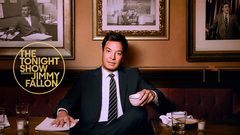Dion DiMucci

Actor
Birth Name: Dion Francis DiMucci
Birth Date: July 18, 1939
Age: 85 years old
Birth Place: Bronx, New York
A giant of white doo-wop and R&B in the early 1960s, Dion is the savvy, cocksure voice behind such enduring hits as "The Wanderer," "Runaround Sue" and "Ruby Baby," which inspired a generation of East Coast rock and pop artists to bring the sounds of the streets to their own music. He began with the vocal group the Belmonts, which scored major hits with "A Teenager in Love" and "I Wonder Why" in the late 1950s. Dion established himself as a solo performer in the early '60s with a string of Top 10 hits including the aforementioned tunes, which established him as a worthy contemporary in both the rock and soul markets. After a turn as a Christian artist in the 1980s, he returned to his roots with a series of roots-rock and blues albums that saw him joined by the likes of Bruce Springsteen and Lou Reed, both of whom owed a musical debt to Dion's music. One of rock-n-roll's most enduring survivors, Dion's best work retained the grit, the heart and the passion of the streets that launched his singing career.
Born Dion Francis DiMucci on July 18, 1939 in the Bronx, NY, he was the son of vaudeville entertainer Pasquale DiMucci and his wife, Frances, who reportedly named their son after the famed Dionne Quintuplets. He had a taste of the entertainment business at an early age through his father, whom he would accompany to various performances. Country music, especially that of Hank Williams, Sr., was his first love, but he eventually schooled himself in blues and vocal harmony groups via the radio. Doo-wop was the rage in the 1950s, and Dion was soon singing a capella with friends on street corners and clubs. Exposure to show business at an early age also left him vulnerable to its darker aspects, and at 14, he began experimenting with heroin, which soon became a full-blown habit.
In 1957, he auditioned for Mohawk Records owners Bob and Gene Schwartz, who tapped him to provide lead vocals for a single arranged by Hugo Montenegro called "The Chosen Few," which featured a vocal group called the Timberlanes. It became a minor regional hit, but the Schwartz Brothers found greater success when they paired Dion with another vocal group, the Belmonts. The trio, comprised of Roosevelt High School classmates Fred Milano, Carlo Mastrangelo and Angelo D'Aleo, were friends of Dion's, and had attempted to establish themselves in the music industry with a 1957 single called "Teenage Clementine," which disappeared without much notice. Dion joined the group as lead vocalist for a pair of failed Mohawk singles before they signed with the Schwartzes' new label, Laurie Records.
Their debut for Laurie, "I Wonder Why," a compulsively danceable pop track anchored by Dion's soaring, confident lead, broke the Top 40 in 1958, which earned them a spot on various touring packages. In early 1959, they were part of the "Winter Dance Party" tour, which featured Buddy Holly, Ritchie Valens and J.P. Richardson, who performed as the Big Bopper. Following their performance in Clear Lake, IA, the four headliners were offered the chance to fly to their next stop rather than ride in the tour bus. Dion turned it down, citing the $36 fee, which was the same amount of money that his parents paid to rent their apartment. Holly, Valens and Richardson boarded the flight, which crashed into a cornfield in the early morning hours of February 3, killing all three musicians.
Dion and the Belmonts finally broke the Top 20 with the Doc Pomus-penned "A Teenager in Love," which rose to No. 5 on the singles chart. They bested it less than a year later with a 1960 take on Rodgers and Hart's "Where or When," but by then, the group was on the verge of collapse due to Dion's heroin addiction and issues over finances and musical direction. Dion would undergo treatment at the height of their popularity several months before parting ways with the Belmonts to undertake a solo career.
His first solo album for Laurie, Alone with Dion, was released before the close of 1960, and featured a Top 20 hit with "Lonely Teenager." Subsequent singles, however, failed to find an audience, and for a while, it seemed as if Dion would fade into obscurity. But after teaming with another vocal trio, the Del-Satins, he stormed back onto the charts with "The Wanderer," a tune he co-wrote with ex-Regents singer-turned-songwriter Ernie Maresca. The song featured an entirely new persona for Dion - gone was the lovelorn teenager of the Belmonts hits; in his place, was a swaggering, streetwise Lothario who essentially warned girls not to fall in love with him, as his roving eye would preclude any fidelity. "The Wanderer" shot to No. 1 on the charts and preceded a string of Top 10 hits, all in the same cocky vein as "Wanderer," including his second No. 1, "Runaround Sue" (1961), "Lovers Who Wander" (1962) and "Little Diane" (1962).
Dion left Laurie for Columbia Records in late 1962, where he immediately scored a trio of Top 10 hits, including "Ruby Baby" and "Donna the Prima Donna." But with the pressures of recording and touring also came a resurgence of his heroin addiction, as well as a sea change in the public's music tastes. The emergence of the Beatles and other English acts cast a pall over the careers of most Stateside rockers from the early 1960s, and like many of them, Dion was forced to seek his fortune in Europe. In 1965, he decided to adopt a bluesier sound, which did little to reverse his decline. The following year, he reteamed with the Belmonts for Together Again, which also failed to find an audience.
In 1968, Dion moved with his wife, Susan - the inspiration for "Runaround Sue" - to Miami, FL where he experienced a religious conversion that aided his full recovery from heroin addiction. He soon returned to the Laurie Records fold, where he scored an unexpected hit with the folky "Abraham, Martin and John," a tribute to Presidents Lincoln and Kennedy and civil rights leader Martin Luther King, which rose to No. 4. By 1969, he was recording for Warner Bros., but his music, which hewed towards an acoustic, singer-songwriter approach, generated a modest, if not tepid response from listeners. A one-off reunion show with the Belmonts at Madison Square Garden in 1972 provided a brief spike in popularity, and led to 1975's Born to Be With You, produced by Phil Spector. Though praised in later years by the likes of Pete Townshend, it too marked the steady downward turn of Dion's career.
By 1979, Dion was recording for the contemporary Christian market, where he scored a Grammy nomination for Best Male Gospel Performance for the 1984 album I Put Away My Idols. He returned to the secular world for a 1987 performance at Radio City Music Hall, where he revisited his '60s hits with a slew of musicians who claimed him as their spiritual godfather, including Bruce Springsteen, Paul Simon and Lou Reed. Dion penned his autobiography, aptly titled The Wanderer in 1988, the same year that Reed inducted him into the Rock and Roll Hall of Fame. The honor sparked revived interest in Dion's music and life, which in turn sent him back into the studio for his first secular album in over a decade, the gritty Yo Frankie (1989), which featured Brit roots rocker Dave Edmunds of Rockpile as producer and vocal cameos by Reed, Simon, Bryan Adams and k.
d. lang.
Dion would spend much of the 1990s and beyond paying tribute to his classic recordings while pursuing newer sounds with a variety of albums. There was a brief stint in a band called the Little Kings, which featured members of the Dictators, Del-Lords and Smithereens, and forays into blues with the Grammy-nominated Bronx in Blue (2006) and Son of Skip James (2007). In 2008, he honored his old touring mates, Buddy Holly and Ritchie Valens, with Heroes: Giants of Early Guitar Rock, which featured covers by pioneering rockers like Johnny Cash and Ricky Nelson. When not in the studio or on stage, Dion, who had returned to Catholicism in the late '90s, worked in prison ministry and addiction outreach. In 2011, he began work on a play based on his life and music. By Paul Gaita
Credits

An American Christmas Together

The Tonight Show Starring Jimmy FallonStream

Mulberry St

ConanStream

Hi-Tek Feat. Jadakiss, Papoose, Dion: Where It Started At (NY)

Face au public

Ten Girls Ago

Teenage Millionaire

Twist Around the Clock




